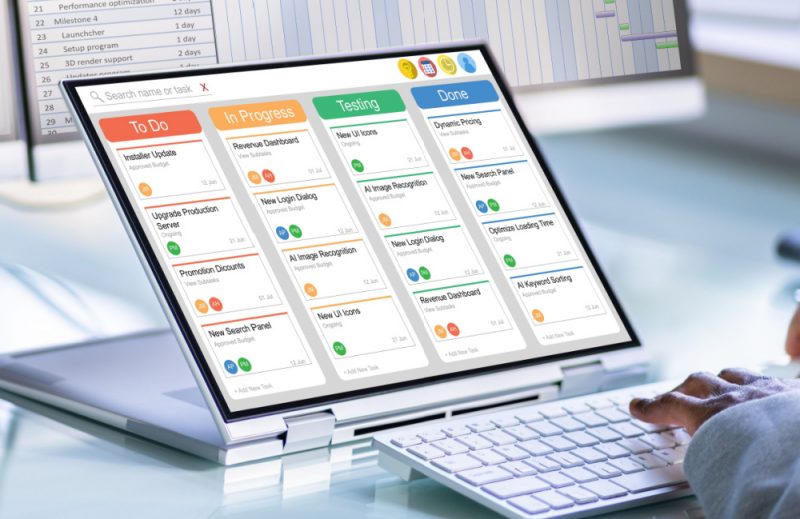Choosing to expand your skills through postgraduate studies is a great stepping stone for career advancement. However, being a working student is like walking a tightrope––a delicate balance between the demands of the workplace and the pursuit of academic excellence. So, how do you manage your time as a working student?
Well, you’re in luck! In this blog, we talk about effective time management and uncover practical tips for studying professionals to navigate the challenges of balancing study and work. Here, we unravel why mastering this skill is pivotal to your success.

The Importance of Time Management for Working Students
Picture this: deadlines looming at work, assignments piling up at school, and the clock ticking mercilessly. It’s a scenario that many Postgrad working students can relate to, and it underscores the importance of effective time management.
So, why is time management so critical for working students like you?
- Optimizing Productivity: Effective time management ensures that every moment is used efficiently. When juggling work and studies, there’s no room for procrastination. By strategically allocating time to your tasks, you can optimize your productivity and achieve more in less time.
- Reducing Overwhelming Stress: The constant battle between deadlines can be daunting. However, with a well-structured schedule, you can avoid the last-minute rush and reduce stress. Breaking down tasks into manageable portions and tackling them systematically minimizes the feeling of being swamped.
- Maintaining Work-Study Balance: One of the greatest challenges for working students like you is learning how to manage your time while studying and working. Effective time management allows for the creation of a schedule that accommodates both work and study hours, preventing one from overshadowing the other.
- Enhancing Academic Performance: Time management isn’t just about completing tasks on time, it’s about doing them well. By dedicating focused time to studies, you can dive deeper into your coursework, leading to a better understanding of the material and improved academic performance.
- Building Transferable Skills: The discipline cultivated through effective time management is a skill that extends beyond the academic and professional realms. Those of you who can master time management are honing a valuable skillset that can be applied to various aspects of your lives.
Whether you’re engaging in full-time vs. part part-time study, time management is crucial to your success. Learning how to do so lets you organize your schedule effectively, without sacrificing any of your responsibilities.
Tips on How to Manage Your Time as a Working Student
Now that you know the significance of time management to working students like yourself, let’s explore practical tips to master the clock:

Develop a Comprehensive Schedule
Prioritize Tasks Effectively
Not all tasks are created equal. Identify high-priority assignments and work tasks based on deadlines and importance. Tackling crucial tasks first ensures that even if unexpected challenges arise, the essentials are covered. Just remember not to put off less urgent tasks for too long so you won’t forget to do them altogether.
Set Realistic Goals
Remember why you decided to study postgraduate and establish both short-term and long-term goals that are realistic and achievable. The SMART criteria–– specific, measurable, attainable, relevant, and time-bound––can guide you in crafting goals that are both motivating and practical.
For instance, let’s say that your short-term goal is to finish a 1200-word essay by Friday and today is Monday. You can set a SMART goal by adding a calendar event repeating for two days, reminding you to write 600 words for the assigned essay from 6 pm to 8 pm. If you stick by this schedule, on Friday you will be ready to submit your essay without having wasted any of your precious time and procrastinating.

Utilize Technology Wisely
Leverage technology to your advantage. Calendar apps, productivity tools, and task management apps can help you stay organized. Taking your CPD online and using automated digital resources can save you valuable time.
Establish a Dedicated Study Space
Create a designated study space that minimizes distractions. Whether it’s a corner of your room or a local coffee shop, having a consistent study environment helps signal to your brain that it’s time to focus.
Embrace Effective Study Techniques
Experiment with different study techniques to find what works best for you. Whether it’s the Pomodoro Technique to break down study sessions or active recall for information retention, discovering your preferred methods can significantly boost efficiency.
Learn to Delegate and Seek Support
Understand when it’s appropriate to delegate tasks at work or collaborate with classmates on group projects. You don’t have to do everything yourself, and admitting you need help is one way you can stay efficient and productive when accomplishing your tasks. Open communication with your employer, colleagues, and professors ensures everyone is on the same page and can offer support when needed.

Schedule Breaks and Self-Care
Recognize the importance of breaks and self-care in maintaining overall well-being. Scheduling short breaks during study sessions and incorporating downtime for relaxation and hobbies helps prevent burnout. You don’t want to just wake up one day feeling tired and regretting your decision to pursue your studies when in reality, you just really needed time for yourself.
Effectively Managing Your Time for Academic and Career Success
The life of a working student is fast-paced regardless of whether you take a face-to-face or online master’s degree course. This is why time management is not just a skill, but a compass guiding you through the maze of responsibilities. By implementing these practical tips, you can meet deadlines and thrive in both your career and educational pursuits.
Remember, the clock keeps ticking, but how you manage your days can make all the difference. It’s not about finding more time; it’s about making the most of the time you have. So, begin your journey of “mastering the clock,” and watch as you unlock doors to a more balanced, successful, and fulfilling academic and professional life.
